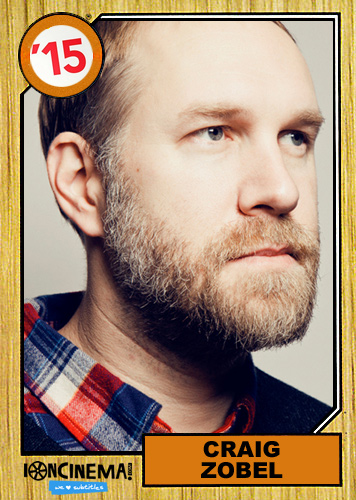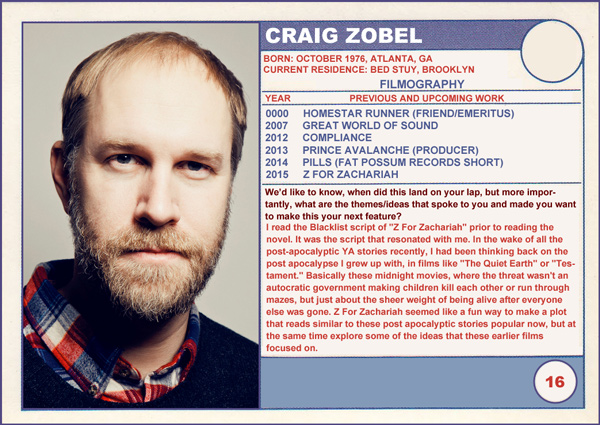 Eric Lavallee: Name me three of your favorite “2014 discoveries”…
Eric Lavallee: Name me three of your favorite “2014 discoveries”…
Craig Zobel: “The Wall,” 2012, Julian Pölsler (on Netflix!), Music – the back catalog of The Animals (hear it on your oldies station!), and TV – BBC’s miniseries “Run.”
Lavallee: Z for Zachariah was part of the industry’s consciousness, first as the novel, but then as an unproduced Blacklist screenplay in 2009. We’d like to know, when did this land on your lap, but more importantly, what are the themes/ideas that spoke to you and made you want to make this your next feature?
Zobel: I read the Blacklist script of “Z For Zachariah” prior to reading the novel. It was the script that resonated with me. In the wake of all the post-apocalyptic YA stories recently, I had been thinking back on the post apocalypse I grew up with, in films like “The Quiet Earth” or “Testament.” Basically these midnight movies, where the threat wasn’t an autocratic government making children kill each other or run through mazes, but just about the sheer weight of being alive after everyone else was gone. Z For Zachariah seemed like a fun way to make a plot that reads similar to these post apocalyptic stories popular now, but at the same time explore some of the ideas that these earlier films focused on.
Lavallee: New Zealand seconds as the backdrop for a ravaged/desolate American wasteland. What visual references did you have from the onset on the look/depiction of this world?
Zobel: I chose to shoot in New Zealand because I was looking for a lush, verdant world. I felt that the grey/brown high contrast world of most post apocalypse movies had already been done bigger and better than we could ever hope to, and the idea of the green “pretty” post apocalypse movie sounded interesting to me. New Zealand gave us all of this, because the whole country basically looks like Narnia.
Lavallee: What physical traits/characteristics were you looking for in the trio of players in the film? And did you have the opportunity to film chronologically, therefore mimic how the triangle come into contact with one another?
Zobel: We were able to shoot the film pretty organically, shooting mostly in order. Due to everyone’s schedules, it just turned out that the way we scheduled the film happened to coincide with the way that the story unfolds, in which two of the actors got to spend a lot of time alone together before the the full trio emerged. All four of us (myself and the actors), had a blast playing with that aspect on set.



